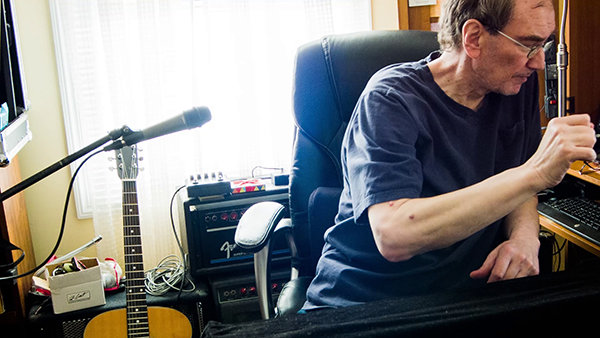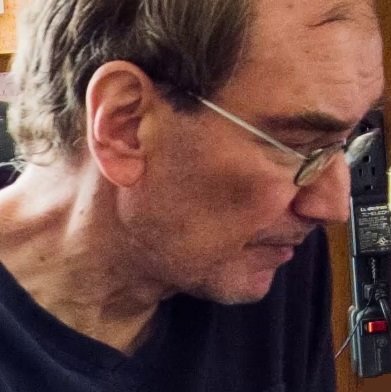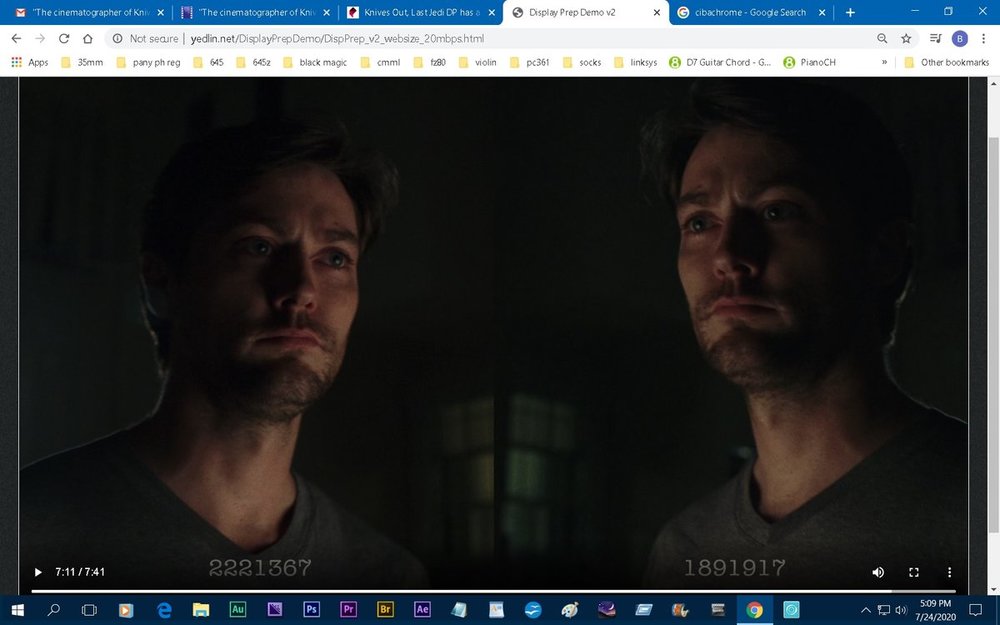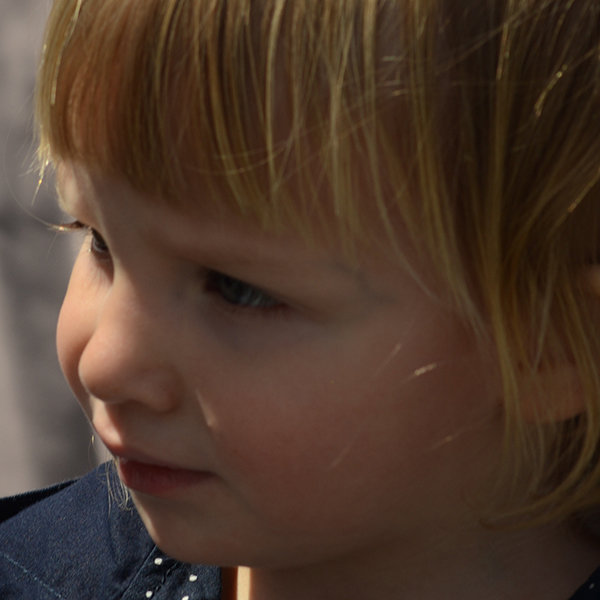
Bob Speziale
-
Posts
186 -
Joined
-
Last visited
Posts posted by Bob Speziale
-
-
Thank you David. So the magic words for google and youtube are pixel binning for video and line skipping for video. Much appreciated. The article and video answer my questions. Your original answer and some of the answers in the thread were above my knowledge of the terms to sink in. But I have it now.
-
53 minutes ago, David Mullen ASC said:
I’d keep Googling, that’s how I would look it up. Some reviews of cameras discuss how they are generating their video, as well as user forums.
Problem with google is it will bring up a million hits related to dslr video specs, nothing on how the video actually records, other than mentioning the crop factor (eg. full frame video on some models, or the video crop factor). That is, they will describe the output, all aimed at potential buyers and users, but nothing on how the output gets produced. This post is the only time I have ever seen the actual mechanics of creating a 2MP video frame discussed anywhere. Maybe it's some sort of trade secret.
-
1 hour ago, David Mullen ASC said:
It varies by camera, some pixel bin, some line skip, a high-end camera would downsample (but I'm not sure many did that because of the processing power needed), some window the sensor, and sometimes it was a combination of windowing, pixel binning, etc. Some sensor cropping is always involved since most still cameras have a 3:2 sensor, not a 16:9 sensor, some do a lot of cropping first (like from full-frame to APS-C area) others crop a little so that the math works out better for whatever process they are doing to get down to HD.
Thank you David. Are there any published articles or video on the process? I was surprised that this was one subject where Google failed me completely.
-
On 8/5/2020 at 3:45 AM, Nicolas POISSON said:
I would not categorize all DSLR in a single set and make generic conclusions based on two models that are 6 years old. All I can say is that the 645Z delivering lower quality video than a BMPCC is not really surprising. Concerning the images you posted, well I cannot tell which camera has better skin tones since there is only one sample. But I would not link skin tones to any debate like pixel binning vs line skipping.
I do not understand what you mean. Whatever video device you use, there is always a compromise between the amount of data, image size, frame rate, compression ratio, and image quality. That is true for a smartphone as well as an Alexa. But this is a different story than the algorithm used to create a 2K stream from a high resolution sensor.
My original question was what is that algorithm? DSLRs have been creating HD video streams for about a decade but I haven't seen any articles on how they do it. Do they just use 2MP of the sensor and tuen off the others, or do they use 2MP of the sensor and rotate to another 2MP for the next frame, or do they use the whole sensor and downsize the image to 2MP?
-
7 hours ago, Nicolas POISSON said:
Some cameras even use different strategies depending on the frame rate, e.g. using the full sensor width with a high quality downsizing algorithm at lower frame rates (24-60P), then switching to a mix of lower quality or sensor cropping algorithm to reduce CPU workload at higher frame rates (120P and above). It really depends on the model. With the increase of embedded horsepower, using the full width of the sensor seems to become more and more common amongst recent DSLR and mirror-less.
Well, "best" in terms of what ?
The BMPCC shoots 12 bit raw dng files which contain about 10x the data that downsized dslr video frames do. To me it just looks better. Here's a single frame from a video I shot at iso-1600 in daylight coming through blinds at f3.5. Here's a single frame (downsized to post here) and a crop of that frame. Colors and skin tones just look better to me.
I was thinking this over last night and realized dslr's usually offer a choice of image size, high, medium and low quality images that will reduce the file size, eg. for emailing. It seems likely that this may be the same process used to ceate the 2MP digital video frames, whatever that process is.
-
22 minutes ago, M Joel W said:
It's complicated and inconsistent and even manufacturers won't say exactly what they're doing.
Some cameras might be cropping in, others might be skipping pixels, others might be binning pixels, others might be reading out a lower quality signal of the full sensor, and then they're all scaling up or down to get to 2MP, like you'd scale in Photoshop.
It's worth knowing what's what so you can anticipate which cameras do well at what. You might get a sharper image, more dynamic range, or more aliasing with one method compared with another. But getting too caught up in that hasn't served me well, just catered to my curiosity.
I was just curious because I couldn't find any easy answers anywhere. I know my 50MP 645Z and my 2MP BMPCC both shoot 1080P video. The BMPCC image seems the best.
-
So it's just the 2MP in the center of the sensor that is used, with all the other pixels turned off? But isn't the lens projecting the image over the whole sensor (or most of it if the video is cropped a bit to 16x9)? But if most of the sensor is used, is the image downsized by the camera to 2MP before the frame is captured?
-
27 minutes ago, Tyler Purcell said:
Oh it would be impossible on a computer or even home display. He treats the image so much, the quality of both the digital and the film are so degraded, you could never tell. Then he finishes in 2k, so the added resolution of the 35mm won't even be noticed. If you were to go side by side with a 6k scan and a 4k finish, you'd notice the difference.
I don't know how you can say that. Even with a screen shot of the two images on my 2K monitor (film on left) reduced in size to post here, you can see the digital image has more blues and the film image has less. If it's not so apparent in skin tones it's obvious on the window frames.
-
 1
1
-
 1
1
-
-
For those of you with technical knowledge, maybe you can answer this question. How does a DSLR with a 16 or 20 or 50MP sensor capture 2MP digital video frames? Are most of the pixels turned off? Are the 2MP images captured by the same pixels on every frame, or after each frame is captured are another 2MP on the sensor used? Or is the whole sensor used used and the frames then downsized? Or something else? On my BMPCC original camera, it has a 2MP sensor, so the same pixels get used for every frame. But how about on a 16MP , 21Mp or even 50MP DSLR?
-
Looking at Yedlin's demo I did see a difference. The left side seemed just a little more saturated and colorful to me than the right, especially in the skin tones. At the end of the demo it said the left side was the 35mm film. This isn't a surprise. Having shot digital and film still pics, I've found no way to 100% match colors of the two, even taken side by side at the same time. They are different, but only noticeable if viewed side by side. Otherwise, once the mind is drawn into the content, it's not noticeable. Back in 1964, most of us got to love the Beatles listening to them on transistor radios with one inch speakers. Art is experienced more in the mind than in the eyes or the ears.
-
 2
2
-
-
The grade looks OK to me. The noise is likely from the low light.
-
Thank you for the info.
-
 1
1
-
-
Very well done. Looks professional. Just curious, what cameras and lenses are you using? Great cinematography.
-
 1
1
-
-
I used my video editing software to capture and record footage from my mini dv Sony camera to my fire wire equipped laptop. The output was a AVI file at 720x480 resolution. Data rate was 29,000 mbps.
-
14 hours ago, Tyler Purcell said:
I mean I started doing professional work when I was 14 years old, at 15 I was a director of live news programming on our local cable access channel and eventually won awards for the programs I produced. I also started going to film school, the summer of my Junior year of high school. So I was way ahead of the curve, already putting myself out there as a filmmaker by the time I went to college full-time. I also didn't immediately go to film school, my grades weren't good enough. So I was rejected and was forced to spend 3 years at a community college part-time, whilst I worked nearly full time at my 2nd career; apple certified technician. So I basically graduated from my 2nd college, already being a apple certified technician AND having a pretty decent resume to boot. Back then it was super hard and very rare to have the access to equipment I did at my age. It wouldn't be for another 10 years or so, before things started to be democratized.
I thank my parents for pushing me and being involved in my filmmaking activities to help me grow when I was younger. I got super lucky on that front, even though we didn't have any money.
When I moved to LA, I got work immediately on craigslist. I got lucky tho, the IT job I got, was with a film producer and when a DP dropped out of the movie they were making, they needed someone right away. I got shoehorned into being the DP for 2 features, both shot with the first generation Varicam. We shot both simultaneously and I didn't finish either one because they ran out of money and my producers left, taking me with them. I was pretty upset, not just because I was pulled away from a project right at the end, but also because my producer "friends" **(obscenity removed)**ed me over and I wound up not getting credit for one of the films I shot OR getting paid. With no money, I had to get a full-time job and from 2003 - 2013, I worked full-time as an engineer for various broadcast and computer (IT) companies around Los Angeles. I reached my peak in 2013 when I had the best job, the highest pay and best hours ever, but the company went out of business and I decided to work freelance again. I got lucky and had a great deal of skills already, so I was able to secure a few decent freelance clients pretty fast and had been 100% freelance since 2014.
I think for cinematographers in 2019, the key is to have SOME sort of camera at your disposal (even if you don't own it) and to have a killer demo reel/website. Those two things will garnish you some work for sure. If I had a 4k digital cinema camera, I would probably be way busier then I am, but honestly I have a lot of work most months.
I think diversification is critical for any freelancer. You need to know at least 3 trades that go along with your normal trade. For instance, I learned how to become a pretty good editor and I can color ok as well. So those two skills help me get work because I can shoot, edit and color pretty much anything.
Today it's so easy to shoot things with your iphone, there are really no excuses to not produce content. Heck, I'm ALWAYS producing something, even if it's just for fun. So kids these days do have it better then we did by a fair margin.
Thanks for posting this response to my question Tyler. I can see similarities to my own start as a computer hobbyist, self taught, doing computerized accounting and database installations for small businesses as a sideline for about 10 years while working as an audit manager to pay the bills, and getting that big lucky break when a person hired from IBM to head up a computerized drafting project quit and I was offered the shot, which led to a very satisfying 20 year career as a sys admin and dba until I retired.
I think your story and Phil Connolly's is quite instructive in the amount of time and work and flexibility it takes to become established in a chosen field. It's probably not something that is taught in school, but really should be. Getting to make a living in a field we love takes a lot of hustle, desire, talent, learning, experience, patience, resilience, and luck. Luck may open the door, but you must be willing to jump in and work hard to make that luck pay off.
-
 1
1
-
-
Tyler, it would be instructive to know how soon after graduation you got your first job in your field and what was it, and how did you get it. Ditto for your second job in your field. How long before you actually could make a living in your field? It seems everyone's biggest obstacle after graduation in many fields, starting off with no money or connections, is getting their foot in the door. You need experience to get hired, you need to get hired to get experience. In my own field of computer specialist it took me 20 years to get where I wanted to be, well paid, appreciated, with enough expertise to be left alone to do the work as I thought best.
-
Perhaps the problem with higher education is that they ought to be more like trade schools. If you go to welding school, you come out a welder and start as an apprentice. If you graduate from dental school you go to work and start filling cavities. If you go to film school, it seems you generally don't come out a cinematographer or get hired as an apprentice cameraman. So the question would be why not.
-
On 11/29/2019 at 6:39 PM, Marco Leoncino said:
Dear all,
it is my pleasure for me to present you my first short movie, filmed in the Nairobi´s slums, in January 2019. I do that with a lot of humility from my side, since I am doing that on a forum with high quality content like this. The film is dedicated to Nairobi´s kids and it is a denounce of the terrible life conditions in these Ghettos. I have worked with a Super 8 camera, using Tri-x film, which has been self developed and scanned by Van Eck in Nederland.
I hope that you can appreciate it!
I think the quote on "what have we done" should have been at the end of the opening titles. I kept wondering throughout the film what was the relevance of the title. I think some more cheerful native music could have been added. The film does show happy kids, so some happy music would have fit in as well. Rather than "Am I asking too much" at the end I would have put "I am just like you". Very Well done.
-
-
I'm guessing something similar could be done in digital with a very slow shutter speed, changing the exposure and contrast and adding colored ambient light and blur in post.
-
 1
1
-
-
Excellent photography. I actually did screenshots on YT at 2K and 4K and there was barely a noticeable difference. Much less than I would have expected. I also did some experiments on my own shooting the same scene with the same settings in 2K and 4K and comparing screen shots. It's making me reconsider my views on 4K vs 2K. I wonder if studio lighting or bright sunlight is needed to see a noticeable difference.
-
Work is a place where they pay you what you are worth, you are selling your skills. School is a place where you pay them to teach you, where you learn how to learn, but probably don't learn the skills you will need on the job. The diploma may get you an interview, but how you do on the job is mostly a function of how well you can manage the relationships with your bosses and co-workers, how eager and capable you are to learn and get up to speed quickly, and your overall attitude and enthusiasm. You can't count on getting many lucky breaks in life, but when they come, take full advantage of them and do whatever is required to make them work.
If you can't get an MFA now, concentrate on getting that first job, on getting your foot in the door. You can always find out what is being studied in the MFA program, and study on your own. Doing that while you work will be more meaningful than doing it in a classroom.
-
6 hours ago, Frank Wylie said:
Some audio tape can be "baked" and that will allow you to make one playback pass in an attempt to transfer the content, but it doesn't always work. There is a lot of info on this process online...
https://www.google.com/search?client=firefox-b-1-d&q=baking+old+audio+tapes
Thanks for the info Frank. Most of my tapes are music tapes and have been replaced with CDs. I will dump them in the garbage one of these days, but if I see one I want to save, I'll try the baking method before recording it digitally.
-
If the stage lighting changes then your iso or shutter speed or aperture has to change as well. Auto iso can be tricky because it may adjust to illuminate the darkest part of the frame, which can blow out other parts. While dark frames can be lightened in post, blown out areas can't be recovered. And if the area being recovered is too dark, it may not look that good either. With two cameras you could set one for the dimmest lighting and the other for the brightest. I don't know how else you could handle it.






Mechanics of digital video capture.
in General Discussion
Posted
Thanks.